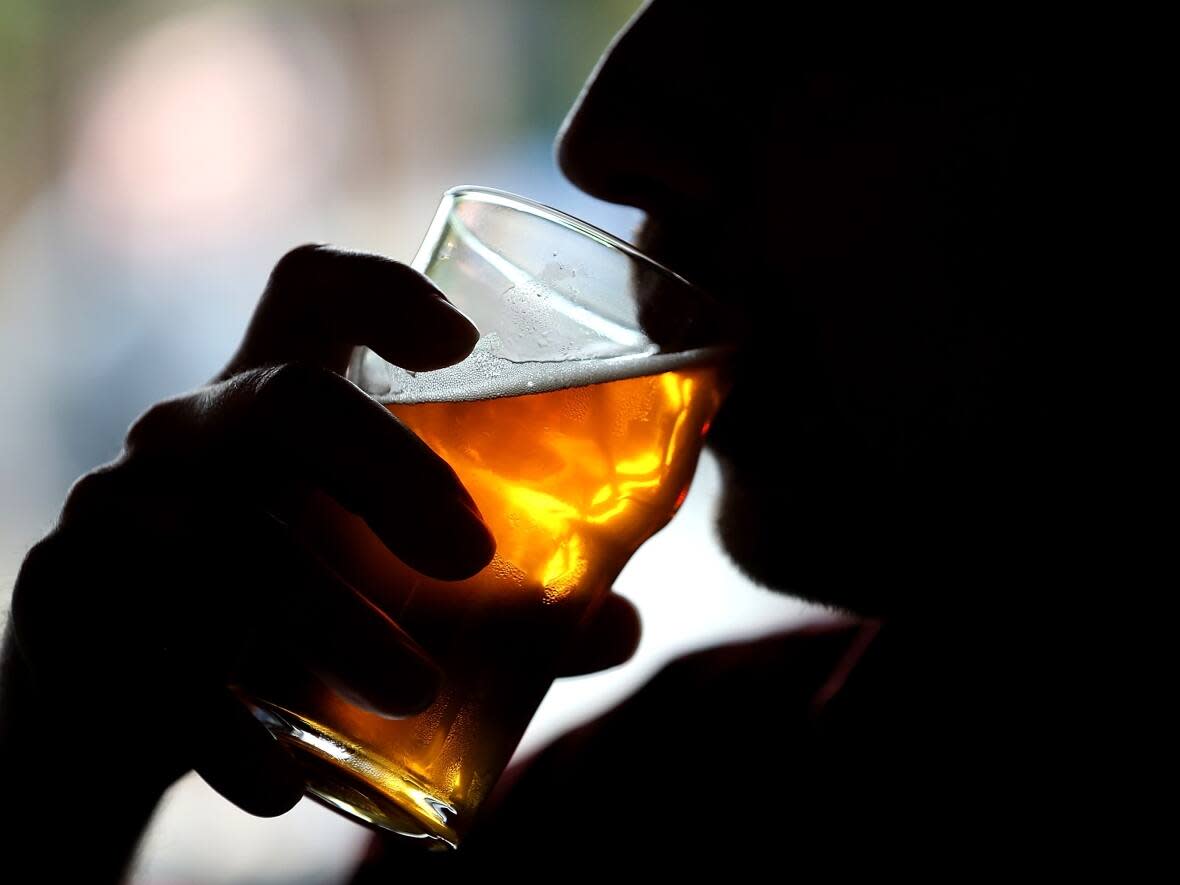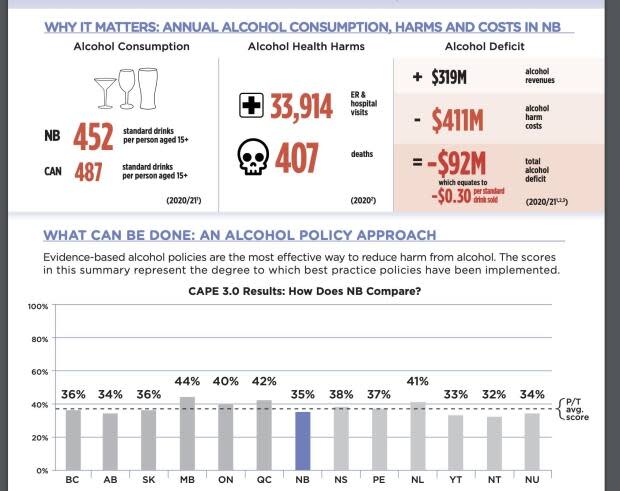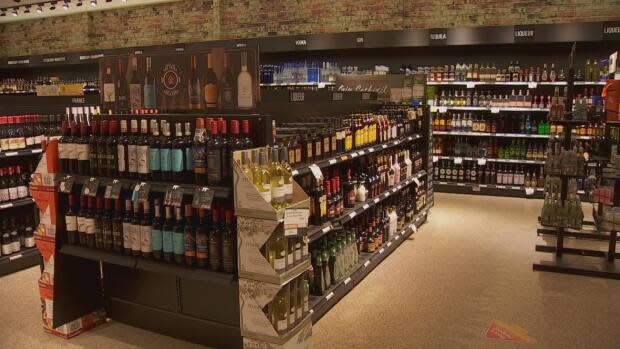Booze prices need to rise, accessibility needs to drop to reduce harm, study says

More than $400 million was spent on costs related to drinking in New Brunswick in 2020— about $92 million more than what the province made in alcohol-related revenue.
In a new study, researchers from the University of Victoria say their estimate covers alcohol-related medical expenses, including more than 400 deaths and close to 34,000 ER visits, as well as policing, court time and lost productivity costs.
The estimate also accounts for illnesses linked to alcohol, including several different cancers, weakened immune systems, heart disease and stroke.
Dr. Timothy Naimi, director of the Canadian Institute for Substance Use and Research, is one of the lead researchers on the Canadian Alcohol Policy Evaluation, the third iteration of a study on alcohol regulation across Canada.
"Alcohol is a major, leading, preventable cause of death, disability and social and economic costs in Canada," said Naimi.

"It's legal, but a very dangerous product and therefore alcohol is supposed to be regulated so that it can be enjoyed safely and responsibly by as many people as possible."
Every province and territory received a failing grade in the assessment, with New Brunswick receiving the second-lowest grade of all provinces with only Alberta and the three territories scoring lower.
The study grades jurisdictions on how well they implement policies "proven to reduce harm from alcohol use."
It examines 11 criteria, including minimum legal drinking age, impaired driving measures, marketing controls and consumer education.
The cost estimate is based on the latest Canadian Substance Use Cost and Harms report, with numbers from 2020.

The alcohol policy evaluation identified three areas for improvement in New Brunswick: pricing, ease of access and distribution control systems.
Accessibility and affordability
While the province does have minimum pricing for alcohol sales, the minimums are lower than recommended, according to the evaluation.
A 15 per cent HST is used for goods sold in New Brunswick, with 10 per cent allocated to provincial coffers. The alcohol policy evaluation recommends booze should be taxed higher, 37 per cent for off-premise alcohol sales and 22 per cent for on-premise sales.
"Taxes are so well established as an effective policy for reducing alcohol-related problems and when they're proposed oftentimes, typically [they are] opposed by industry and certain politicians," said Naimi.
It's also relatively easy to access alcohol in New Brunswick, with no limitations on home delivery through third-party companies, such as DoorDash and SkiptheDishes and that's a problem, according to the evaluation.
Alcohol can also be sold outside of traditional retail sites in New Brunswick, such as at grocery and convenience stores. Only 20 per cent of liquor retailers are government-owned, according to the evaluation.

It says that a high level of privatization and deregulation of alcohol sales leads to more outlets and market competition, which could include longer hours for sale of alcohol, lower pricing and fewer interventions to prevent sales to minors or intoxicated consumers.
CAPE 3.0 recommends the province increase the proportion of government-owned off-premise retail outlets and "move toward a full government monopoly."
"Alcohol companies try to weaken the monopolies. But the monopolies are good because they're funded by the taxpayer and because they are [run] by the government," Naimi said.
"The government, in theory, does have more of an incentive to balance commercial aspects with their obligation to protect the health and well-being of their citizens," he said.
Naimi says N.B. Liquor also needs an explicit mandate that includes protection of public health and safety.
CBC News requested interviews with Public Health and N.B. Liquor. Both provided statements saying they are reviewing the evaluation and declined the request for interviews.
People need "good information"
Julie Atkinson, executive director of the Saint John-based Sophia Recovery Centre, is on the front line of seeing the costs related to alcohol consumption, and she thinks the issue is bigger than the numbers on paper — and more nuanced.
"There's an impact on the family members of those who are struggling with an addiction," Atkinson said. "The cost there is actually huge,"

"The family members and ... others in that person's life who are having to dedicate their time to looking after somebody who's not well, instead of making the contribution to their community that they otherwise would be."
The centre is a resource for women struggling with substance use, including alcohol.
Atkinson said that addiction is a public health issue and is happy that research efforts are being aimed at how it can be addressed through effective policy.
She also said the efforts don't stop at the study's top regulatory recommendations and highlighted information as the key to reducing the "harms" of alcohol.
"People can't make good choices if they don't have good information," Atkinson said.
"To me, the government's primary responsibility is to look at it and to provide the evidence and to provide it in ways that are meaningful to people so that people can make good decisions around how much of the substance they want to consume."
Health and safety messaging, which includes labelling, is where New Brunswick got its lowest score in the evaluation, at 2 per cent one of the lowest in the country, with no ongoing health and safety campaigns and no requirement for health messaging in retail outlets.


